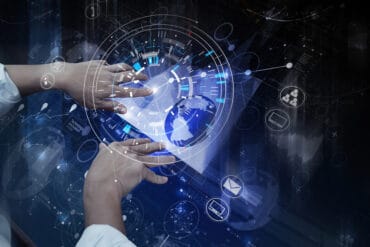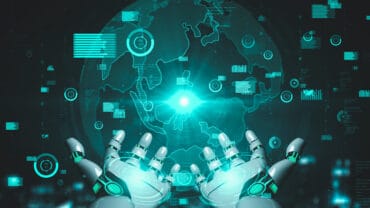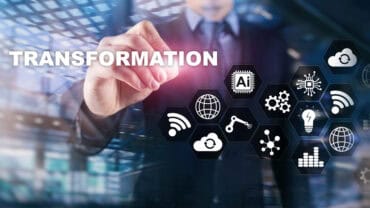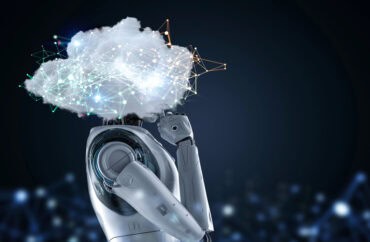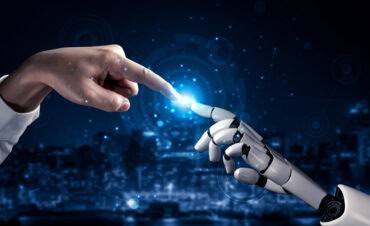
AI has the power to reach in and reconfigure aspects of work and business that other technologies have barely scraped.
The release of ChatGPT, and now Microsoft’s Bing AI and Google’s Bard, heralds the democratization of artificial intelligence, opening its power and potential to everyone on the planet with an internet connection. Just as the PC democratized computing, and the internet democratized access to all the world’s information, generative AI means new horizons to people and businesses. Is this the latest spate of tech hype, or is this truly something different?
Accenture, in its latest analysis of the proliferation of artificial intelligence across the globe, suggests that the rise of AI means unprecedented changes. “The technology underpinning ChatGPT will transform work and reinvent business,” say the report’s team of authors, led by Accenture’s Paul Daugherty. “Advances in language-based AI – the technology that powers applications like ChatGPT – are ushering in a new era for total enterprise reinvention. Everything from science to business to society itself will be transformed. The positive impact on human creativity and productivity will be massive.”
This gushing may sound a bit over the top, even for industry analysts who predict massive transformations every three years or so. How exactly will generative AI deliver even more transformation than we’ve been experiencing from other technologies in recent years? Daugherty and his co-authors say artificial intelligence has the unique power to reach in and reconfigure aspects of work and business that other technologies have barely scraped.
See also: A Lot of Excitement About ChatGPT, But Be Wary
One of the areas ripe for impact is the reinvention of work. “Every role in every enterprise has the potential to be reinvented, as humans working with AI co-pilots becomes the norm, dramatically amplifying what people can achieve,” says the Accenture team. “Generative AI will impact tasks, not occupations. Some of those tasks will be automated, some will be transformed through AI assistance, and some will be unaffected.” Accenture estimates generative AI taking up more routine tasks and assignments could shave off 40% of people’s hours per week.
Internal or extractive artificial intelligence, contained within the bounds of enterprises, is also emerging, the Accenture team reports. “To increase the value of generative AI and foundation models in specific business use cases, companies will increasingly customize pretrained models by fine-tuning them with their own data—unlocking new performance frontiers.”
To move in the right direction, Daugherty and his co-authors make the following recommendations:
- Business first. “Focus on low-hanging-fruit opportunities using consumable models and applications to realize quick returns. Focus on reinvention of business using models that are customized with the organization’s data.”
- People matter. “Develop technical competencies like AI engineering and enterprise architecture and training people across the organization to work effectively with AI-infused processes.”
- Get your proprietary data ready. “Take a strategic and disciplined approach to acquiring, refining, safeguarding and deploying data.”
- Level up responsible AI. “Build in controls for assessing risks at the design stage and embed responsible AI principles and approaches throughout the business.”


